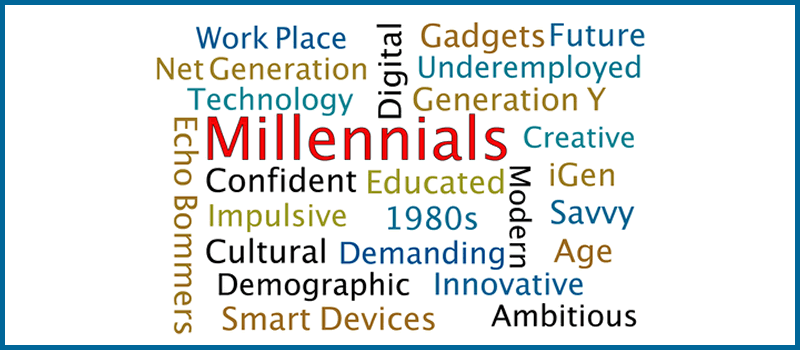 With already more than 40 million millennials in the workplace and millions more added each year, human resources professionals around the country are adapting to the unique style of this large group of young workers. By 2025, millennials will hold three-quarters of the world’s jobs, Time reports.
With already more than 40 million millennials in the workplace and millions more added each year, human resources professionals around the country are adapting to the unique style of this large group of young workers. By 2025, millennials will hold three-quarters of the world’s jobs, Time reports.
Understanding the unique characteristics of the millennial demographic can help effectively integrate new millennial workers with existing generation X and baby boomer team members.
Who are millennials?
Millennials were born between approximately 1980 and 2000. LiveScience notes that the group is sometimes described as narcissistic, lazy and disinclined to stick with jobs. After growing up in an era in which every kid received a trophy and in which discipline was sometimes lacking, some millennials have unrealistic expectations of jobs and work life.
A 2013 Time article states that research has shown millennials to be coddled and even delusional. Forty percent of millennials in the workplace believe they should get a work promotion every other year even if their performance indicates otherwise.
But the Time article goes on to note the school of thought that millennials are simply adapting in a world that’s changing quickly. Confident, optimistic and pragmatic, they’re just trying to get by.
What’s important to millennials?
Management and organizational development consultant Susan Heathfield notes that on the job, millennials seek frequent feedback, sometimes even on a daily basis. They want to work for bosses who act as caring mentors and who keep them in the loop.
Many millennials in the workplace seek a fun, stimulating workplace where they can make friends with colleagues and enjoy appreciation for their creative contributions. More than 80 percent of millennials want to work flexible hours, according to Time, and many want to work remotely.
Tips for managing millennials in the workplace
Heathfield advises that to effectively integrate three generations of workers — millennials, generation X and baby boomers — managers should capitalize on millennials’ propensity to work well as part of teams. In addition, providing a structured environment with regular hours, definite deadlines and clear goals will help millennial workers understand what is expected.
Managers should plan to invest significant time in coaching and providing guidance to millennial workers. To make best use of their enthusiastic attitudes, they should be encouraged with frequent feedback and positive reinforcement. The employee happiness of millennials will have a progressive impact on organizations.
Disclaimer Statement: All information presented is for information purposes only and is not intended to provide professional or legal advice regarding actions to take in any situation.


Leave a Reply
You must be logged in to post a comment.